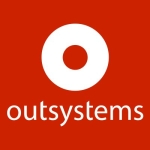We use this solution mostly for ITSM, but we also have customers who use it for customer service management and item discovery.
The features I found most valuable in this solution are usually also found on other platforms like the Visual Task Boards.
For change management, I find the CAB workbench very useful. I haven't seen any other solution that has a CAB workbench or advanced automated solutions for a change advisory board. That's one of the perks of ServiceNow. Other perks include the Visual Task Boards and the Virtual Agent. ServiceNow also has the Workflow Engine which works very well and is very intuitive. Some of the development tools give you a lot of freedom in terms of changing processes. That's what we like.
This solution needs to be improved for global use. Currently, it's very oriented to the processes and needs of the US customer base, like their compliance solution or GRC (Governance, Risk, and Compliance), and not so much for customers from other parts of the world. Some users may like the things that ServiceNow is improving, but those are very oriented to users based in the United States and Europe.
In Latin America which is the geographical region we work in, it's not very useful. Some of the customers are more interested in other solutions. Sometimes they put aside ServiceNow because it is focused on the needs of the customer base in Europe and the US. This is one of the disadvantages I see.
Another disadvantage is the level of maturity that the customer has to have to get value from a solution like ServiceNow. The customer needs to have a great level of maturity. A company that is starting its journey with ITSM wouldn't find ServiceNow very useful, because sometimes there's a considerable amount of code you need to know to be able to implement ServiceNow. This will depend on the complex needs that a customer may have, for the customer to find ServiceNow as a useful solution. Depending on the level of maturity they have, they would need that amount of customization. I don't see the need for coding as a problem. The problem I see is that the level of maturity that the customer needs to have is high.
There's quite a lot of features in ServiceNow. Currently, we haven't had any sort of need that ServiceNow and the features that they already have, don't resolve. There's no feature that I can think of right now that I'd like to be added in the next release.
There are some guidelines that ServiceNow has that automate the implementation, but they're available only for ITSM and ITOM. It would be good if those automated guidelines are also made available for other ServiceNow solutions like customer service management, configuration management, and asset management.
Another area for improvement is the lack of clarity in terms of how this solution is licensed. It is usually very complicated for customers to know how they are being charged for the licenses that they consume. In most of the ServiceNow solutions, this problem is persistent.
There might be some bias because we are ServiceNow partners and we're also Freshworks partners. We're not users. We're partners. We implement both solutions for customers.
We used cloud-based deployment.
We've been working with ServiceNow for quite some time.
Some of the customers are interested in Acquire when they think of ServiceNow.
My advice to others looking into implementing ServiceNow is for them to really know what the objective of the implementation is: what they're trying to fix and what problem they're trying to solve. They have to be very conscious of these things because if they are not, the solution may not be a good fit. It's going to be too big of a problem to solve. They need to have a high level of maturity to get everything they need from a platform like ServiceNow.
I'm rating this solution a nine out of ten.




















